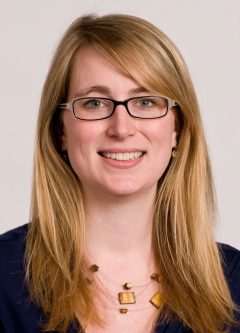 By Jordanna Tennebaum, TLS freelance writer
By Jordanna Tennebaum, TLS freelance writer
It’s rare for faculty members to apply their core subject matter as a method of instruction. This however is exactly what Assistant Professor Audrey Girouard has been doing since joining Carleton University’s School of Information Technology in 2011.
Through courses such as Human Computer Interaction and Design and Intermediate Programming, Girouard has used her knowledge of information systems to design classes that incorporate online polls, gauging overall comprehension while keeping students engaged. According to Girouard, this exciting academic field lends itself well to her original take on education.
“It’s a very versatile subject…it’s interesting to use technology to teach technology,” says Girouard.
Online polling is only one essential element of Girouard’s striking approach to teaching and learning. She also regularly assigns group work, hoping to impart knowledge of contemporary teamwork. Equal contribution is encouraged, instilling an important sense of responsibility.
Girouard also employs a practical approach to instruction, particularly in her Industrial Partnerships course. For example, last year, through a collaborative project between Carleton and the Canada Science and Technology Museum, Girouard had students develop mobile applications that addressed critical issues in an interactive manner.
While Girouard has made significant headway in her discipline, earning her a 2014 New Faculty Excellence in Teaching Award, she admits that there is much room for improvement in the information technology sphere.
“There’s definitely an opportunity to provide more interactions in the classroom and a better learning environment,” she says.
Girouard has been persistent in her own attempts to stimulate this very environment. By tracking her students’ specific aptitudes, she aims to address the needs and backgrounds of a diverse student body while also highlighting unique talents.
It follows that Girouard also emphasizes the importance of creativity. On varied assignments, grading is done within a 90 per cent scale, with the remaining 10 per cent left for extra work. Students are encouraged to attain the latter through diverse means, spurring original concepts and proposals.
With the combination of teamwork and practical experience acquired through her courses, Girouard says she anticipates her students will be well suited to today’s competitive workforce.
“I think our students are better prepared for the real world…if you work at a company, you will not be in your own bubble doing straightforward tasks…those who want to go above and beyond can do that,” says Girouard.